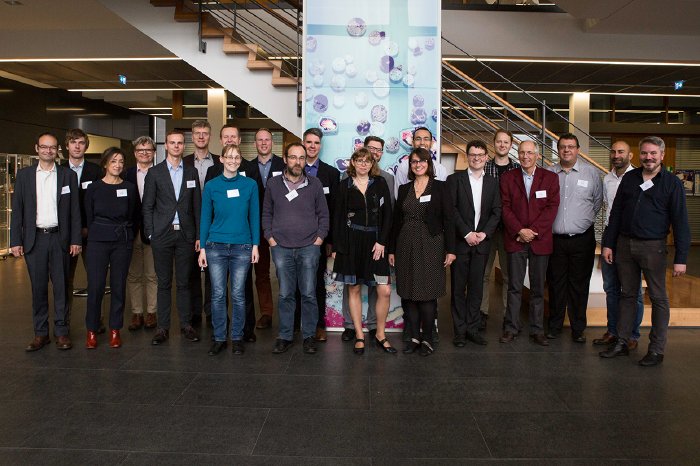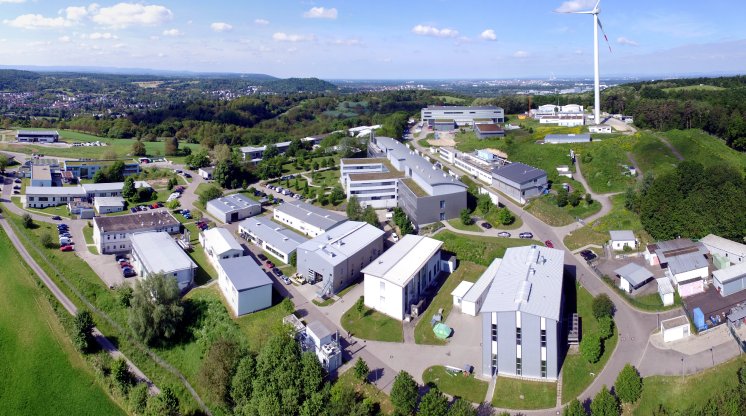Redox-flow batteries are efficient (>75%), safe, and have a longer service life than conventional batteries such as lithium ion. Different combinations of electrolytes offer a range of advantages in terms of higher power or capacity and environmental compatibility. However, to fully exploit the possibilities, research is needed into materials (membranes, electrodes, electrolytes, catalysts and sealing materials) for the new battery systems.
Coordinated by the Fraunhofer Institute for Chemical Technology, and funded by the European Union's Marie-Sklodowska-Curie programme, in the research network “FlowCamp” (MSCA-ITN-2017- 765289), 15 PhD students will develop materials for three next-generation redox-flow battery systems: hydrogen-bromine, aqueous organic and zinc-air flow battery systems. The team will also carry out simulation and modelling to guide the development and increase power output. Prototypes developed in the project will be tested using the cutting-edge facilities of the German-funded (19 million €) RedoxWind campus at Fraunhofer ICT.
Besides advancing the development of the new systems, FlowCamp will fulfil another important role: the combination of multiple disciplines (including electrochemistry, material science and engineering / system design) is essential to develop optimal battery systems, but at present few researchers have the necessary overview. The 15 PhD students in FlowCamp, who will start work in mid-2018, will gain a unique skill set through theoretical and practical work covering every aspect of system development, as well as training in transferable skills such as project management, which will prepare them for their future careers in the expanding field of energy storage.
The network offers the chance for outstanding graduates with the appropriate qualifications to participate in an international project with industrial and academic partners from Germany, the Netherlands, Israel, Hungary, France, Luxembourg, Switzerland and the Czech Republic. For more information about the project and the open PhD positions, please contact the project coordinators at the Fraunhofer Institute for Chemical Technology (ICT), Germany.



